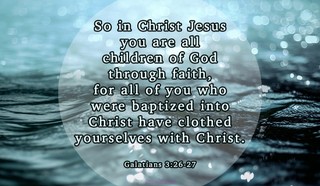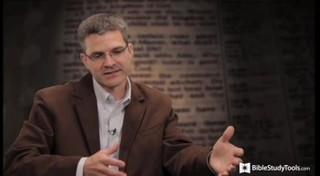
- Recent Translations
- All Translations
Galatians 3:13
Share
Settings
Images for Galatians 3:13

Galatians 3:13 Meaning and Commentary
Christ hath redeemed us from the curse of the law
The Redeemer is Christ, the Son of God; who was appointed and called to this work by his Father, and which he himself agreed to; he was spoken of in prophecy under this character; he came as such, and has obtained eternal redemption, for which he was abundantly qualified; as man, he was a near kinsman, to whom the right of redemption belonged; and as God, he was able to accomplish it. The persons redeemed are "us", God's elect, both of Jews and Gentiles; a peculiar people, the people of Christ, whom the Father gave unto him; some out of every kindred, tongue, people, and nation: the blessing obtained for them is redemption; a buying of them again, as the word signifies; they were his before by the Father's gift, and now he purchases them with the price of his own blood, and so delivers them "from the curse of the law"; its sentence of condemnation and death, and the execution of it; so that they shall never be hurt by it, he having delivered them from wrath to come, and redeemed from the second death, the lake which burns with fire and brimstone. The manner in which this was done was by being
made a curse for us;
the sense of which is, not only that he was like an accursed person, looked upon as such by the men of that wicked generation, who hid and turned away their faces from as an abominable execrable person, calling him a sinner, a Samaritan, and a devil; but was even accursed by the law; becoming the surety of his people, he was made under the law, stood in their legal place and stead and having the sins of them all imputed to him, and answerable for them, the law finding them on him, charges him with them, and curses him for them; yea, he was treated as such by the justice of God, even by his Father, who spared him not, awoke the sword of justice against him, and gave him up into his hands; delivered him up to death, even the accursed death of the cross, whereby it appeared that he was made a curse: "made", by the will, counsel, and determination of God, and not without his own will and free consent; for he freely laid down his life, and gave himself, and made his soul an offering for sin:
for it is written.
( Deuteronomy 21:23 ) ,
cursed is everyone that hangeth on a tree:
it is in the Hebrew text, (ywlt) , "he that is hanged": which is the very name the Jews
F25 commonly call Christ by way of reproach; that is, "everyone that hangeth", as the apostle rightly renders it; which is always the sense of an indefinite phrase, unless a restriction is put: adding out of the same verse, "on the tree", by way of explanation; for which he cannot upon any account be found fault with, since it is manifest one hanged on a tree is meant, "who is accursed of God", or "the curse of God"; the curse of God, in vindicating his righteous law, was visibly on such a person; as it was on Christ, when he hung on the cross, in the room and stead of his people; for he was made a curse, not for himself, or for any sins of his own, but for us; in our room and stead, for our sins, and to make atonement for them: upon the whole, the Jew F26 has no reason to find fault as he does, either with the apostle's sense, or citation of this passage; for whether it be rendered "hangeth", or is "hanged", the sense is the same; and though the apostle leaves out the word "God", it is clear from what he says, that his meaning is, that the curse of God lighted upon Christ as the surety of his people, standing in their legal place and stead, in order to redeem them from the law and its curse; since he says, he was "made a curse" for them, which must be done by the Lord himself: and whereas the Jew objects, that it is impossible that anyone, even an Israelite, should be delivered from the curses of the law, but by the observance of it, this shows his ignorance of the law, which, in case of sin, requires a penalty, and which is its curse; and it is not future observance of the law will free from that: and as for the Gentiles, he says, to whom the law was not given, and who were never under it, they are free from the curses of it, without a redemption; but as this is to be, understood not of the ceremonial, but of the moral law, it is a mistake; the Gentiles are under the moral law, and being guilty of the violation of it, are liable to its curse; and cannot be delivered from it, but through the redemption that is in Christ Jesus; by virtue of which, they have a part and portion in the blessings promised as follows.
F25 Vid. Buxtorf. Lexic. Talmudie. col. 2596.
F26 R. Isaac Chizzuk Emuna, par. 2. c. 89. p. 469.
